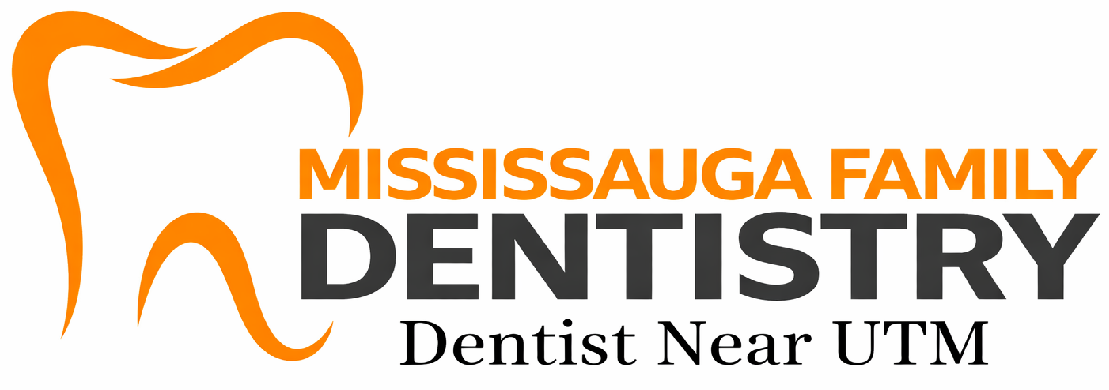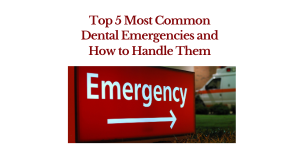Dental emergencies often occur unexpectedly, turning a peaceful day into a stressful one in an instant.
Whether it’s a sudden toothache, a knocked-out tooth, or a broken crown, knowing how to handle these situations is key to minimizing damage and pain.
Seeking emergency dental care promptly can save your tooth and reduce the risk of complications.
Here, we’ll highlight the top 5 most common dental emergencies and provide practical tips on handling them until you can see your family dentist.
1) Severe Toothache
A toothache can start as a minor annoyance but quickly escalate into intense pain that disrupts your day. Several issues, such as decay, infection, or an abscess, can cause it. The pain may extend to your jaw, neck, or head, making it hard to focus on anything else.
How to handle it:
- Rinse with warm water to clean the area.
- Gently floss around the tooth to release any trapped food that could be contributing to the pain.
- Take over-the-counter pain relief like ibuprofen or acetaminophen.
- Avoid applying aspirin directly to the tooth, which can damage your gums.
- Seek emergency care promptly to determine the root cause of the pain.
2) Knocked-Out Tooth
Losing a tooth can be scary, but if handled correctly, a dentist can sometimes save and re-insert the tooth. Timing is critical in this type of dental emergency—acting quickly can improve the chances of saving the tooth.
How to handle it:
- Pick up the tooth by the crown (the part that chews), not the root.
- Rinse the tooth delicately with water if it’s unclean, but do not scrub it.
- Try to place the tooth back into the socket, holding it by the crown.
- If reinsertion isn’t possible, keep the tooth damp by putting it in a glass of milk or a tooth preservation kit.
- For the best chance of saving the tooth, contact your family dentist immediately or seek emergency dental care within 30 minutes.
3) Chipped or Broken Tooth
Accidents happen—whether you bite down on something hard or take an unexpected fall. Chipped or broken teeth are a common dental emergency. Even a small chip can cause discomfort or lead to bigger issues if not treated.
How to handle it:
- Rinse your mouth using warm water to cleanse the spot.
- Apply gauze to any bleeding spots for 10 minutes or until the bleeding ceases.
- Use a cold compress on your cheek to diminish swelling.
- Accumulate any damaged pieces of the tooth and bring them to your dentist appointment.
- Visit your family dentist as soon as possible to discuss repair options, including bonding, veneers, or crowns.
4) Lost Filling or Crown
Losing a filling or crown can expose your tooth to damage and increase your sensitivity to hot or cold foods. While this is often not as urgent as a knocked-out tooth, it still requires prompt attention to prevent further decay or discomfort.
How to handle it:
- Over-the-counter dental cement can be applied temporarily to protect the tooth.
- Avoid chewing on the side of the mouth with the missing crown or filling.
- Keep the crown safe if it has fallen out, as it may be possible to reattach it.
- Seek emergency dental care to prevent the tooth from becoming further damaged or infected.
5) Abscessed Tooth
An abscessed tooth is an infection at the tooth’s root or between the gum and a tooth. It is a serious condition that can spread to other areas if left untreated, causing swelling, fever, and even more severe health issues.
How to handle it:
- Rinse with salt water to diminish swelling and pain.
- Apply a cold compress to your face for pain relief.
- Over-the-counter pain relievers help manage discomfort until you can visit your dentist.
- See a family dentist or seek emergency dental care immediately, as the infection could spread to other parts of your body if not treated.
Conclusion
Dental emergencies can be alarming, but knowing how to respond can make a significant difference. Whether managing a painful toothache or handling a knocked-out tooth, staying calm and following these tips will help you take control of the situation. Always seek emergency dental care when in doubt—it’s better to be safe than sorry. Your family dentist is there to provide the care you need when these unexpected events arise. Take action quickly to protect your oral health and avoid complications.

